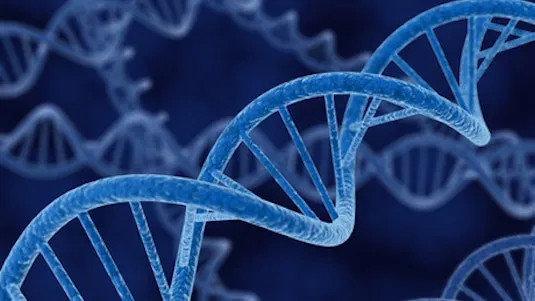
Genetics and Society: A Course for Educators 
This course provides educators with the knowledge and skills to discuss the ethical implications of modern genetics, such as cloning, genetic enhancement, and ownership of genetic information. Participants will gain the tools to explore the impact of advances in genetics on society and how to integrate these topics into their classrooms. ▼
ADVERTISEMENT
Course Feature
![]() Cost:
Cost:
Free
![]() Provider:
Provider:
Coursera
![]() Certificate:
Certificate:
Paid Certification
![]() Language:
Language:
English
![]() Start Date:
Start Date:
31st Jul, 2023
Course Overview
❗The content presented here is sourced directly from Coursera platform. For comprehensive course details, including enrollment information, simply click on the 'Go to class' link on our website.
Updated in [March 06th, 2023]
Genetics and Society: A Course for Educators is an online course designed to help educators understand the implications of advances in genetics on society. Through this course, participants will gain an understanding of the ethical implications of modern genetics, including cloning, genetic enhancement, and ownership of genetic information. They will also learn how to integrate these issues into their classrooms. The course is designed to provide a comprehensive overview of the science of genetics, as well as the ethical and social implications of modern genetics. Participants will gain an understanding of the history of genetics, the current state of the field, and the potential implications of genetic technologies. They will also learn how to use genetics to inform their teaching and to help their students make informed decisions about the ethical implications of modern genetics. Finally, the course will provide participants with resources to help them continue their learning and to stay up-to-date on the latest developments in the field.
[Applications]
The application of this course is to help educators understand the implications of advances in genetics and how to incorporate them into their classrooms. Educators can use the knowledge gained from this course to help their students understand the ethical implications of genetic technologies and how they can affect society. Educators can also use the course to help their students develop critical thinking skills and become more informed citizens. Additionally, educators can use the course to help their students understand the importance of responsible stewardship of genetic information and the potential consequences of misusing it.
[Career Paths]
1. Genetic Counselor: Genetic counselors are healthcare professionals who provide information and support to individuals and families who are at risk of, or have already been affected by, genetic conditions. They help patients understand their genetic risks and make informed decisions about their health. As the field of genetics continues to advance, the demand for genetic counselors is expected to grow.
2. Bioethicist: Bioethicists are experts in the ethical implications of advances in biotechnology. They analyze the ethical implications of new technologies and advise policy makers on how to best regulate them. As the field of genetics continues to advance, the demand for bioethicists is expected to grow.
3. Genetic Engineer: Genetic engineers are scientists who use genetic engineering techniques to modify the genetic makeup of organisms. They are responsible for developing new technologies and techniques to improve the quality of life for humans and other organisms. As the field of genetics continues to advance, the demand for genetic engineers is expected to grow.
4. Genetic Educator: Genetic educators are professionals who specialize in educating the public about the ethical implications of advances in genetics. They provide information and resources to help people make informed decisions about their health and the health of their families. As the field of genetics continues to advance, the demand for genetic educators is expected to grow.
[Education Paths]
1. Genetics Degree: A Genetics degree provides students with a comprehensive understanding of the science of genetics, including the study of DNA, gene expression, and genetic engineering. Students will learn about the ethical implications of genetic technologies, as well as the potential applications of these technologies in medicine, agriculture, and other fields. This degree is becoming increasingly popular as the field of genetics continues to expand and develop.
2. Bioethics Degree: A Bioethics degree focuses on the ethical implications of advances in biotechnology, including genetic engineering, cloning, and stem cell research. Students will learn about the legal and ethical considerations of these technologies, as well as the potential benefits and risks associated with their use. This degree is becoming increasingly important as the field of biotechnology continues to grow and develop.
3. Science Education Degree: A Science Education degree provides students with the skills and knowledge necessary to teach science in the classroom. Students will learn about the latest advances in science and technology, as well as the ethical implications of these advances. This degree is becoming increasingly popular as the need for science educators continues to grow.
4. Public Health Degree: A Public Health degree focuses on the health of populations, including the study of epidemiology, health promotion, and disease prevention. Students will learn about the ethical implications of public health policies, as well as the potential benefits and risks associated with their implementation. This degree is becoming increasingly important as the field of public health continues to expand and develop.
Pros & Cons

Fun and informative

Comprehensive and informative

Engaging topics

Stimulates interest

Insightful

Useful resources

Well structured

Ethical issues analyzed

Strengthens competency.

Systemic problem with peerreview; Discussion feature not enabled.
Course Provider

Provider Coursera's Stats at AZClass
Discussion and Reviews
0.0 (Based on 0 reviews)
Explore Similar Online Courses

Introduction to Retail Management

Learn Basic Mexican Spanish

Python for Informatics: Exploring Information

Social Network Analysis

Introduction to Systematic Review and Meta-Analysis

The Analytics Edge

DCO042 - Python For Informatics

Causal Diagrams: Draw Your Assumptions Before Your Conclusions

Whole genome sequencing of bacterial genomes - tools and applications

Biology 102: Basic Genetics

Introduction to Genetics: Certificate Program


Start your review of Genetics and Society: A Course for Educators